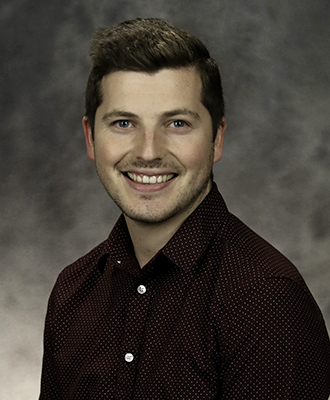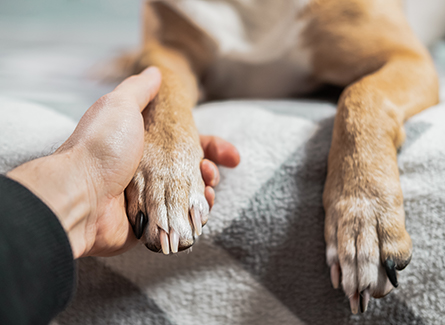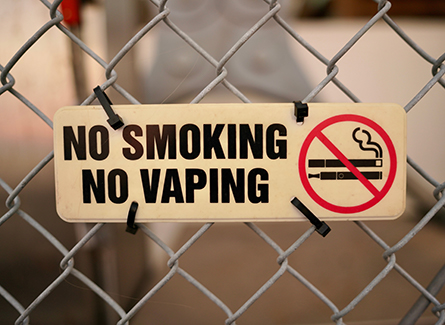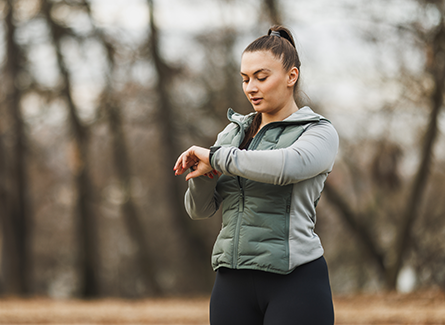Sleep like the pros: Your guide to expert sleep
September 9, 2025By: Trevin Lambert
Categories: Your Wellness
Tags: Sleep Medicine
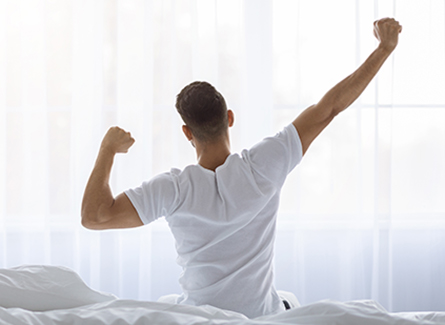
Ever wondered how top athletes stay sharp through punishing schedules, jet lag and relentless training? As football season kicks off, players are diving into early practices, cross-country travel and high-stakes games. But there's one performance tool they never skip: sleep.
Professional athletes treat rest as a strategic advantage. That’s why many sports organizations hire sleep psychologists to help ensure their players and personnel get quality rest, enabling them to perform their best both physically and mentally. Here’s what the pros are doing — and how you can do it too.
The psychology of sleep
John McCurdy, BS, RPSGT, co-coordinator at NKC Health Sleep Center, puts it simply, “All your body systems are affected by sleep. You need good quality sleep consistently to maintain alertness and be able to do good problem-solving in your day-to-day activities.”
Consistent, high-quality sleep fuels:
- Mental clarity
- Emotional balance
- Physical resilience
- Enhanced recovery from injury
That’s why many teams now employ sleep psychologists and performance coaches to help athletes optimize their rest. These experts analyze sleep patterns, travel schedules and even hotel room setups to ensure players get the best possible rest and recovery — whether they’re at home or on the road.
Sleep disorders like insomnia and sleep apnea are surprisingly common among both active and retired athletes. The physical demands of training, frequent travel across time zones and high-stress environments can all disrupt sleep cycles.
But how does this relate to you? Well, spoiler alert, you don’t have to be in the NFL to intercept their sleep routines.
Get in the game — It’s a real snooze fest
No jersey? No problem. You can still steal a page from the playbook of elite athletes and upgrade your sleep game with these expert-approved tips:
- Stick to a routine. Going to bed and waking up at the same time each day trains your body’s natural rhythm. Consistency strengthens your internal clock, making it easier to fall asleep quickly and wake up feeling refreshed.
- Wind down with intention. Create a pre-sleep ritual that tells your brain it’s time to relax. Light stretching, reading, journaling or listening to calming music are all great practices to integrate into your sleep routine.
- Avoid electronics before bed. Shut off screens at least 30 minutes before sleep. Even through closed eyelids, that light can stimulate your brain and prevent you from falling into a deep sleep. If you fall asleep with the TV on, set a timer to shut the TV off.
- Cut off stimulants. No caffeine within five hours of bedtime and avoid alcohol or tobacco in the evenings. Alcohol may make you feel drowsy at first, but it disrupts your sleep cycles and causes frequent awakenings throughout the night.
- Give yourself a cool, dark, quiet space. Your environment signals your body it’s time to rest. Lower temperatures and reduced light and noise can help your brain relax and feel at ease.
- Don’t eat big meals before bed. Digestion keeps your body too active for deep, restorative sleep. It can also cause discomfort, heartburn or indigestion that makes it harder to fall and stay asleep.
Don’t let poor sleep sideline your health
It’s not just about feeling rested the next day, sleep is also preventative. Quality sleep has been shown to protect your long-term health. Poor sleep can lead to many other health issues, such as:
- Fatigue
- Slower recovery from injury or illness
- Obesity
- Anxiety, depression and mood swings
- High blood pressure, diabetes and stroke
- Heart failure (if left untreated)
So, when is it time to get expert help for your sleep? John suggests watching for warning signs: “If you consistently feel tired despite getting enough hours, you wake up gasping, snore heavily or if fatigue interferes with your daily life, these could signal sleep disorders, such as sleep apnea or insomnia.” John also notes that sleep medications can be helpful in some cases, but they should always be used under the guidance of a sleep specialist.
Sleep wins championships
The pros don’t compromise on their sleep — so why should you? Our board-certified sleep doctors and expert technologists at NKC Health Sleep Center are here to help you game-plan for better sleep.
We diagnose and treat a wide range of conditions, from sleep apnea and insomnia to restless leg syndrome, narcolepsy and other disorders that keep you from getting truly restorative rest.
Learn more by visiting our website or give us a call today at (816) 691-5096.
